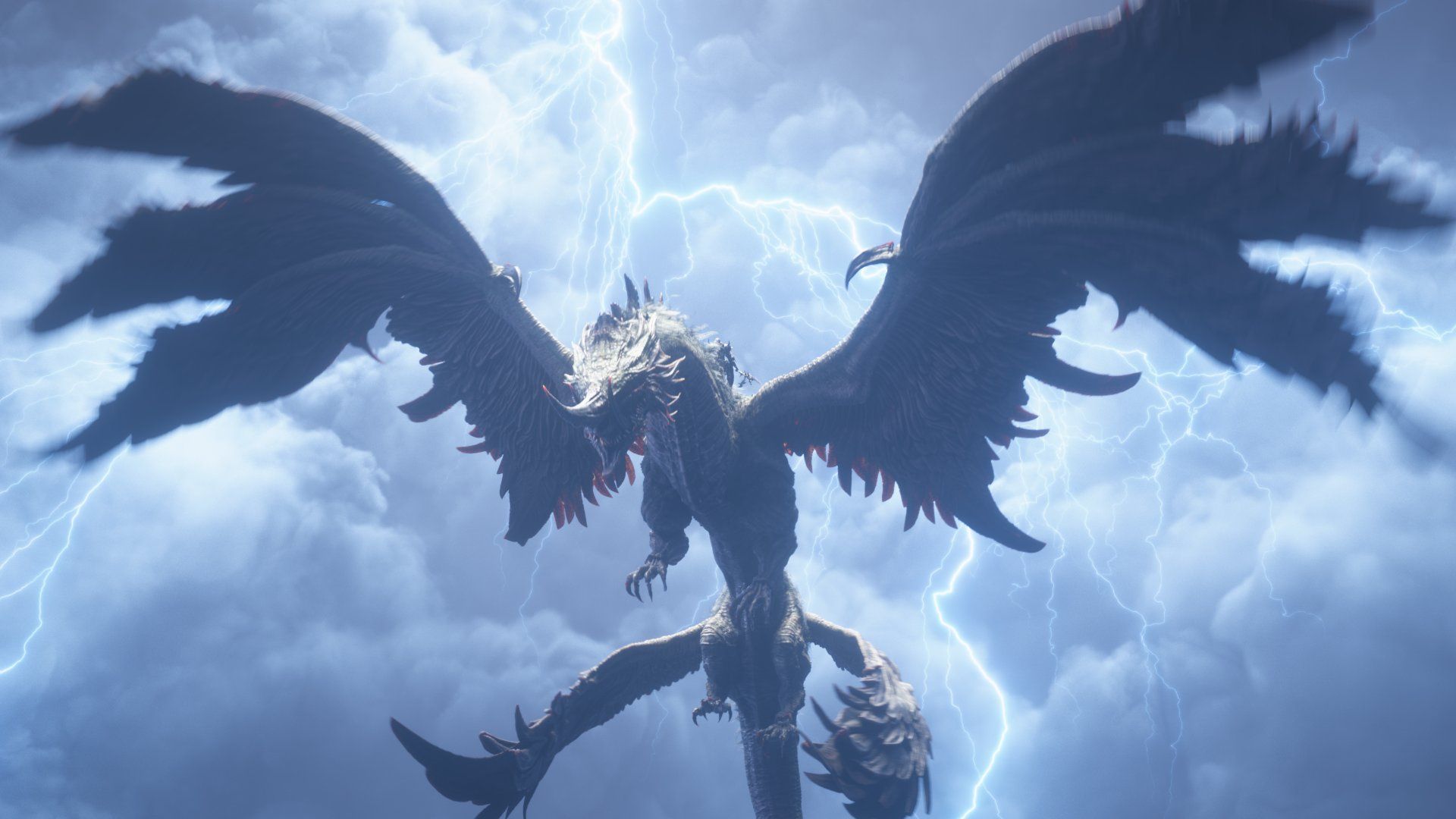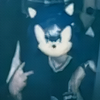Vengeance Will Be Ours!
Sahl djahs afah an! Dragonspeak in Final Fantasy XIV

Forget everything you know about dragons from Tolkien, D&D, and Dr. Ernest Drake’s Dragonology — in Final Fantasy XIV. The first dragons we meet are immortal aliens from outer space who speak via telepathy and breathing.

In a 2015 post on the official Square Enix forums, game localizer Fernehalwes (aka Mr. Michael-Christopher Koji Fox), discusses the creation of Dragonspeak, a language spoken by the eponymous dragons in Final Fantasy XIV. The sound, flow, and symbolism inherent in Dragonspeak are now a distinct staple of FFXIV lore — since the advent of A Realm Reborn, players have been hearing the sonorous, breathy tones of dragons large and (relatively) small over the course of the game’s story and soundtrack.
Source: YouTube.
First, let’s talk syntax. English is a “subject-verb-object” (SVO, colloquially) language. In contrast, Japanese is SOV or subject-object-verb. This classification refers to how sentences are constructed across various languages. In English, we say “the quick brown fox jumps over the lazy dog”, putting the subject (the fox) before the verb (jumps), followed by the object (the dog). In Japanese, the sentence would be constructed like “the quick brown fox the lazy dog jumps over”, because the object is placed before the verb. According to Koji Fox, “the basic structure of a sentence [in Dragonspeak] is Verb-Object-Subject”; the dragons would say “jumps over lazy dog brown fox”. In fact, they might even trim the adjectives to shorten the sentence: “jumps over dog fox”.

“This exhibits how important action is to the dragons as opposed to the initiator of that action,” Fox explains. He uses a different example: a wombat eating a Lalafell. Dragons would construct this sentence as “ate Lalafell wombat”, placing greater emphasis on the verb. To a dragon, “who ate the Lalafell is (relatively) unimportant. Immediately recognizing that ‘eating’ has occurred readies the dragon to decide on appropriate action in response.”
For a species that lives for millennia, names and faces become a blur in the eternal march of time. Dragons are unlikely to remember everyone they’ve ever met. The Warrior of Light, however, is living proof that while one’s body will eventually disappear, their deeds can never be forgotten. In A Realm Reborn, even the people of Eorzea can’t remember the faces of the brave warriors who prevented the Seventh Umbral Calamity — but no one can forget that they are alive as a result of that sacrifice. The player’s adventuring career doesn’t end there; we rectify gaps between reality and the encroaching void, liberate nations from imperial rule, slay dark sorcerers of the distant past, and avenge our fallen loved ones through victory in the face of despair.
What we do with our transient lives is infinitely more important than the minute complications of existence. Names and appearances are but immaterial bindings on the brilliance of our ambitions. Dragons recognize this, and that recognition is reflected in the language they speak.

Despite its now-significant presence in FFXIV, Dragonspeak was nearly lost to the “dark ages” of the 1.0 launch. Fox says that he “pitched [his concepts] to the loremaster at that time (Kenichi Iwao, also the world creator on [Final Fantasy XI]) who thought they were interesting”, and asked Fox to further develop his ideas. In the aftermath of 1.0’s failure, however, his work would then remain unused for almost four and a half years. It wasn’t until A Realm Reborn that Dragonspeak had its day — Fox pitched his old ideas to the game’s new loremaster during the early stages of development on ARR’s first expansion, Heavensward. The loremaster “was surprisingly open to the idea… and the rest is history.”
Endwalker introduces its own somber parallels to this story of development hell. Much like the “dark ages of 1.0”, the dragons once lived on a dying, wartorn planet far from our own. Their numbers dwindled in the pallor of disease, colonization, and despair; it was only when Midgardsormr, father of the First Brood, fled his homeland with a clutch of eggs that dragonkind was able to survive. Just as FFXIV held fast to life in A Realm Reborn, so too did dragons retain their life and language in the bright tomorrows of an unknown star: Etheirys, the planet our Warrior of Light calls home.
And yet, the dragons did not retain their dignity. The history of dragonkind is tragic, marked by war, conquest, and persecution at every turn. After tens of thousands of years living as slaves under the Allagan Empire and as pariahs in Ishgard, the dragons learned to be economical with what little they had. This hardship and scarcity, too, are conveyed in Dragonspeak—Fox explains that over time, “multiple meanings have been consolidated into single terms and redundancies eliminated. Words have been shortened, simplified, or condensed to minimize oratory exertion. Instead of differences in meaning being represented by different words, inflection and breath patterns have become the norm.”

Perhaps the most poignant of all Dragonspeak’s characteristics is the presence or absence of “life” in words. Fox describes how “most words (with some exceptions, of course) represent either a concept that contains or is void of life. Words that are deemed to contain life, such as ‘dragon,’ ‘person,’ and ‘flesh’, will almost always contain a bass-heavy nasal N sound somewhere in them, whereas words without life, such as ‘escape,’ ‘sleep,’ and ‘see’, will always contain what can be best described as a wispy/breathy sound similar to lightly clearing one's throat, but without the… er, juiciness, for lack of a better term. The former is… transcribed… with an [n], the latter with an [h], to distinguish them from normal ‘n’ and ‘h’ sounds.”
Dragon — dra[n]
Person — arr[n]
Flesh — [n]esh
Escape — e[h]sk
Sleep — so[h]m
See — [h]ess
Our human understanding of “living” and “dead” is quite limited; dragons have a broader concept of what makes something alive. A prominent example “is the word for death, mor[n], which contains the life-representing [n].” We typically consider death the total absence of life. However, the dragons consider death an integral part of life, something that could not exist without it. It is this belief that adds the [n] in mor[n]. Fox gives another example in [n]oskh (to ask) — draconic cultural values maintain that questions are the means by which one navigates life as one ventures through it. Life is a journey in search of meaning; to question is to live.

This firm belief in questioning stands at odds with Ishgardian society as depicted in Heavensward. Obedience is paramount in every aspect of Ishgardian life — the nobility bind their children to study and arranged marriage while the clergymen deliver sermons of hellfire. Death to the dragons! Death to the beasts at our gates, defiling the Fury’s sacred image! Built-in Halone’s image, Ishgard could do no wrong. Under the auspices of a corrupt pope who deliberately suppressed the history of the Dragonsong War, anyone who deviated from the canonical interpretation of Halonic scripture was severely punished. To be branded a dragon-sympathizing heretic was often a death sentence; we see more than one person jailed, beaten, or thrown into an icy canyon to die over the course of the story.
When Ishgard confronts the true origins of its thousand-year war with dragonkind — the gruesome murder and devouring of the dragon Ratatoskr — they begin to make amends. Ishgard atones for its crimes against dragons by building a nation where questioning is safe, encouraged, and even sacred in a reformed Halonic doctrine. In a time well beyond mortal memory, the men and dragons of Coerthas once lived together in harmony; the player helps build a foundation for that harmony to live again.
Dragonspeak is meant to be read as “something… ever-so-close, but always just out of reach. Something that, in our hubris, we humans have convinced ourselves (as did the Allagans) we could learn, conquer, and thus, make our own”. Its sparse sentence structure, emphasis on living action, and tonal breath are entirely foreign to the people of Etheirys. And unfortunately, as is true in real life, cruel people tend to subjugate what they can’t understand. This is further exemplified in the fact that dragons do not have a written version of their language; any readable instance of Dragonspeak in the game has been transliterated into the Eorzean alphabet (standard English). Our approach to their language in itself stems from the very mortal line of thinking that we must subsume in order to understand.

The main theme of Endwalker, Footfalls, features melodic callbacks to every expansion in FFXIV. For Heavensward, the lyrics to its titular main theme are echoed—in the context of the current story, however, they take on new meaning. Dragons remain steadfast; the universe, in all its hubris, sought to destroy them. First in the Omikron War, then in chains at the hands of the Allagans, then culled en masse at war with the Ishgardians, and now unyielding as they fight for Etheirys against The Final Days. No longer do their melodies call for the destruction of man. Instead, they represent fierce hope. The call for vengeance is not a bloody declaration of war, but proud defiance of past suffering. For dragonkind, the best revenge is living well.
Language in itself is a cultural journey. Forged in the fires of its history, a language tells the living, breathing story of its people — Dragonspeak is no exception. It tells the story of the unconquerable; through war, famine, sickness, and death, dragonkind endures. And with their guidance, so do we.
As the dragons themselves might put it…
Kohm an ahm nuuh [Our new song comes]
Doh an ang in na [Leave our pain behind]
Seih an esh y nesh [Our will unbroken]
Nehsk an hess y sohm [Reborn, our dreams]
Y ahim nuuh! [Of a new age!]
